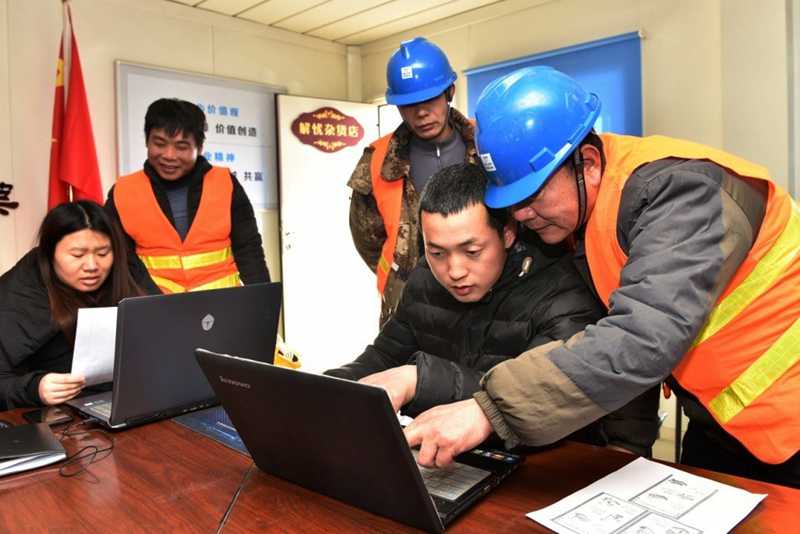


An 80-year-old woman named Ge Yuqi is learning how to use social application WeChat with the help of a volunteer on January 16, 2018. (Photo by Shi Yucheng from People’s Daily Online)
Thanks to the popularization of smart phones and mobile payment , China’s e-commerce industry is now embracing new growth opportunities: senior citizens.
The consumption by the aged group on China’s e-commerce platform JD.com experienced a 78-percent growth year on year in the first half of 2017, the company said in a report. The sales of commodities from the elders surged by 61.8 per-cent from a year ago, higher than the average growth rate of the whole platform.
Statistics from China’s e-commerce giant Alibaba showed that nearly 30 million consumers aged 50 or above have reg-istered on its platform Tmall, and the average spending of those users in their 50s amounted to 5,000 yuan ($790) each year.
China is already an aging society. The country had more than 230 million people aged 60 or above at the end of 2016, 16.7 percent of the total population. The number is expected to rise further.

Volunteers help migrant workers buy train tickets ahead of the Spring Festival at a project site based in Shangzhuang township, Beijing on January 17, 2018. (Photo by Weng Qiyu from People’s Daily Online)
Though the young generations still constitute the majority of online-shoppers, an increasing number of middle-aged and seniors are joining in with the development of mobile internet and payment, popularization of smart phones, and the change in consumption concept.
In terms of online consumption made by middle-aged and aged group, the buyers are not always the users, since the seniors and their siblings often make online purchases for each other. In addition, healthy, fashionable and trendy prod-ucts are preferred by the group.

 Award-winning photos show poverty reduction achievements in NE China's Jilin province
Award-winning photos show poverty reduction achievements in NE China's Jilin province People dance to greet advent of New Year in Ameiqituo Town, Guizhou
People dance to greet advent of New Year in Ameiqituo Town, Guizhou Fire brigade in Shanghai holds group wedding
Fire brigade in Shanghai holds group wedding Tourists enjoy ice sculptures in Datan Town, north China
Tourists enjoy ice sculptures in Datan Town, north China Sunset scenery of Dayan Pagoda in Xi'an
Sunset scenery of Dayan Pagoda in Xi'an Tourists have fun at scenic spot in Nanlong Town, NW China
Tourists have fun at scenic spot in Nanlong Town, NW China Harbin attracts tourists by making best use of ice in winter
Harbin attracts tourists by making best use of ice in winter In pics: FIS Alpine Ski Women's World Cup Slalom
In pics: FIS Alpine Ski Women's World Cup Slalom Black-necked cranes rest at reservoir in Lhunzhub County, Lhasa
Black-necked cranes rest at reservoir in Lhunzhub County, Lhasa China's FAST telescope will be available to foreign scientists in April
China's FAST telescope will be available to foreign scientists in April